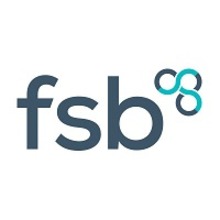Two-thirds of small firms in the South West have no active plan to reduce their impact on the environment, according to a new survey, with many arguing they should receive tax breaks, grants or low interest loans to help them go green.
The report by the Federation of Small Businesses (FSB) – issued to coincide with the COP26 conference – reveals the majority of the region’s small firm owners accept there is a climate crisis. 
However, they say they need more support and grant funding to be able to play their part in helping their business to deal with it.
More than 60% believe grants or low interest loans would encourage them to make changes such as installing energy efficiency measures, while nearly four in 10 say a reduction in their tax bill would also be a key factor to help move towards net zero.
The majority of bosses said they were already taking steps to make their business more energy efficient despite most not having a formal plan, with improved recycling and waste management measures the most common.
However, green transport issues were seen as more of a problem. The costs of electric vehicles was seen as a ‘barrier to change’ by more than half of survey respondents and just 10% of firms said they had installed a workplace charging point for EVs.
The FSB report – called Accelerating Progress – shows 46% of South West firms want to do more to achieve net zero – far higher than any other region and almost twice the percentage of businesses from the East Midlands.
The FSB, Britain’s biggest business representation group, has made a number of recommendations to try to help small firms on their net zero journey, including asking government to: 
- Launch a ‘Help to Green’ initiative encompassing £5,000 vouchers that businesses could spend on environmental products and services.
- Introduce a scrappage scheme through which diesel commercial vehicles could be recycled in exchange for grants that could be put towards cleaner hybrids and ZEVs.
- Work with Ofgem to establish a taskforce of suppliers, small business landlords and business groups to agree how to cut energy use in rented premises.
- Lower the capital requirements banks must adhere to when lending to businesses for green improvements.
- Set out target-based infrastructure strategies to deliver necessary ZEV charging infrastructure by 2030.
FSB national chair Mike Cherry said: “Adopting sustainable practices on the journey to net zero is everyone’s duty.
“Small businesses are keen to play their part, but often don’t have the resources, deep pockets and dedicated specialists enjoyed by their larger counterparts, so can find identifying and taking the necessary steps a challenge.
“There’s no shortage of enthusiasm among small firms to reduce their impact on the environment, and the government should take note – our report sets out a range of comprehensive recommendations which, if taken forward, will equip our 5.6m small business owners with the tools they need to build a more sustainable future.”






























